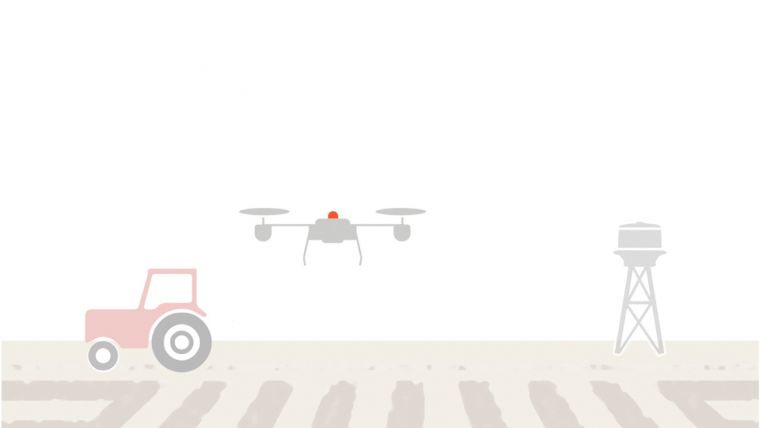My Adventures in the Agtech Start-up Space
A GIS Perspective on Career Opportunities in the US Agtech Industry.
In the following article, which is an adaptation of an earlier blog post, Todd Barr, an experienced geospatialist who is based in Fort Collins, Colorado shares his thoughts on the emerging Agtech industry; one which is embracing modern technology and skills in order to increase both efficiencies and bottom lines. The following is what geospatialists should, according to Todd, know about Agtech before deciding to pursue a career in the industry.
Agtech and AgData start-ups seem to be all the rage right now. While searching on the job market recently (having finished an earlier contract), I decided to engage with and learn more about the opportunities within this emerging community. I reached out to a number of people, inside and outside my network, responded to job adverts, and received more than a dozen interviews, some with firms dedicated to agriculture, and some Ag-adjacent.
Of those interviews, 10 of them were informative ones, while the rest were formal HR interviews. During this time, I also spoke with CEOs, CDOs, senior tech people, as well as with so-called ‘Spatial Argonomists’. It’s worth mentioning that this is a report on my own experiences - therefore, it’s all qualitative. Since, it was not mentioned that I would subsequently write about my experiences from the interviews, names and company details have been withheld.
Startup Demographics
Most of the firms I spoke to were less than 30 people; one or two were slightly above 50 people. They were geographically dispersed across the United States, and only a quarter was based in Silicon Valley. The companies were mainly VC-backed start-ups that stood separate from larger firms. The rest were mostly in the midwest, in either college towns, or the local major city.
Apart from the Silicon Valley-based firms, most of the firms would not provide a relocation package, and remote work was only an option for one of the 17 firms, meaning that attracting talent from the major tech centres was, apparently, not a priority. Relative to the required skill set, salaries tended to be on the low side for the region, and the senior position salaries were in the mid-range.
Although the firms offered typical insurance packages, few of them offered any equity or profit sharing incentives, nor did they offer any continuing education packages. This suggests that the companies were more focused on employing local talent with limited experience than they were on acquiring more diverse and experienced skills which would help to develop their product.
Over the course of my engagement with these companies, I asked a number of questions. I have been in this game for a long time, and therefore know that it is a good idea to ask tough industry-specific questions during an interview.
Firstly, I asked about the current ‘burn rate’ of these firms, including their forecast on how much longer their current funding round would last. Excluding those who had recently received funding, the answers fell within six months to a year. Some were very sure they would get the next round of funding before they would run out. Others weren’t so optimistic; with some indicating that they were increasing sales teams in order to either break even or generate a profit.
My second question focused on who the firms saw as their major competition. Most of the respondents indicated either major equipment manufacturers, seed producers, or local partners to these large firms, who are beginning to expand their services to include Agtech offerings. The reason for this is because those larger firms have the capital backing to build those groups, without the pressure to become profitable immediately.
My third question sought to understand the five to ten year ambitions of these firms. Some indicated an intent to sell as soon as possible, others indicated that by 2020 they would still be seeking funding (which isn’t unusual for a startup), while many others, including CEOs, indicated that 2025 was beyond their current focus.
My final question concerned their own motivation, and what keeps the owners awake at night. Oddly, perhaps due to the difficulty which the question or the broad nature of it, this question did not evoke much of an answer. Some mentioned failing employees, while others feared the difficulties of partnerships (i.e. a major seed producer partnering with a large Business Intelligence software provider).
Analysis
On reflecting upon some the questions, my feeling about the Agtech start-up industry is somewhat ambiguous. Many of the firms seem to have only a year or so on solid ground, meaning that any position with these firms would either be constantly at risk or short term.
Coupled with the lack of incentive to relocate, successful applicants could be forced to move, at personal expense, to a somewhat insecure position, in an area which may have little in terms of alternatives in case that job is lost. It is, after all, worth remembering that more rounds of funding can very often increase the likelihood of a firm being sold off by its VC backers.
The answers to my question about competition in the industry were, for the most part, concerning. Farmers are already getting many of these services through a pre-existing, trusted provider as part of their equipment budget. Many respondents seemed unaware of the actual added-value of their product or service, and, more importantly, why customers should swap over. Coupled with the current low commodity prices and the risk adverse tendency of farmers, the career opportunity which this industry presents to geospatial professional is questionable. Considering this, it seems as if the only businesses which will be able to profit from the industry are the large Agri-businesses which can sustain inevitable losses. For this reason, it is difficult to see how Agtech start-ups will be able to compete with the more resilient and capital-rich corporate model.
Some responses suggested that there is a lack of vision within the Agtech industry. Although it is less difficult to see three years out, ten-year business plans require a commitment and understanding of how a firm and its staff members should evolve and grow. In other words, staff members should not be treated as a dispensable commodity.
I found the answers regarding motivation from the owners to be the most perplexing. Lots of considerations should, after all, play on the mind of a business founder. Few respondents, for example, seemed to fully understand what was happening outside of their field and business. Although founders need a certain amount of “tunnel vision” in order to succeed, data-driven Agtech companies need at least a basic knowledge of commodity trends if they are to do so.
Based on the above experience, my impression is that most Agtech start-ups will not survive beyond a few years. With low commodity prices making the mid to large-sized farms less profitable, Agtech companies will face a tough battle for customers of their technology, especially while current profit margins remain razor thin. Therefore, my prediction is that much of the talent and tech of these smaller companies will, eventually, be scooped up at a rock bottom price.
Final Thoughts
Agtech startups are bringing unique views and concepts, which are helping to advance the agricultural field. The community contains an amazing mix of ideas around data capture and processing, as well as ideas around big data, geospatial data, unstructured data, and real-time data. Despite the culture of innovation which surrounds it, the current state of the commodities market means that most of the startups may not survive until the market rebounds. Meanwhile, the established agricultural firms, which will undoubtedly benefit from an influx of technology from these startups, will, thanks to their sizable advantage, become smarter, more efficient, and more dominant.
This article was published in GIS Professional February 2018

Value staying current with geomatics?
Stay on the map with our expertly curated newsletters.
We provide educational insights, industry updates, and inspiring stories to help you learn, grow, and reach your full potential in your field. Don't miss out - subscribe today and ensure you're always informed, educated, and inspired.
Choose your newsletter(s)
























